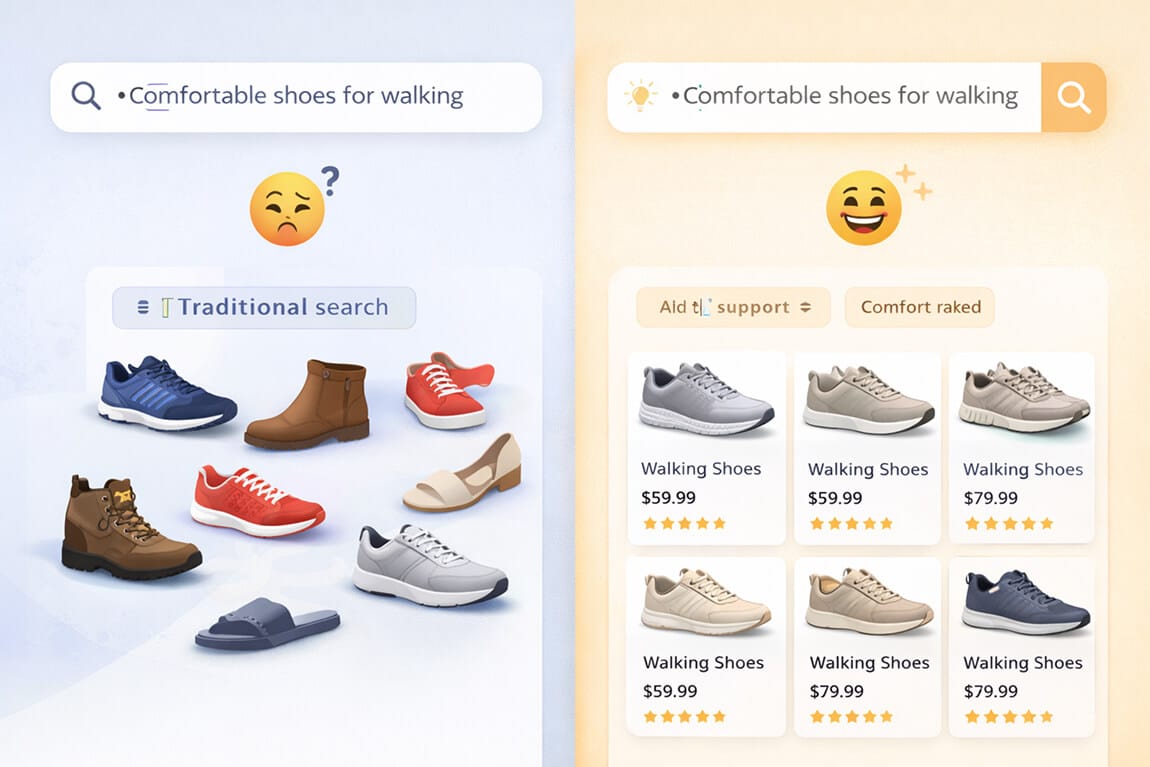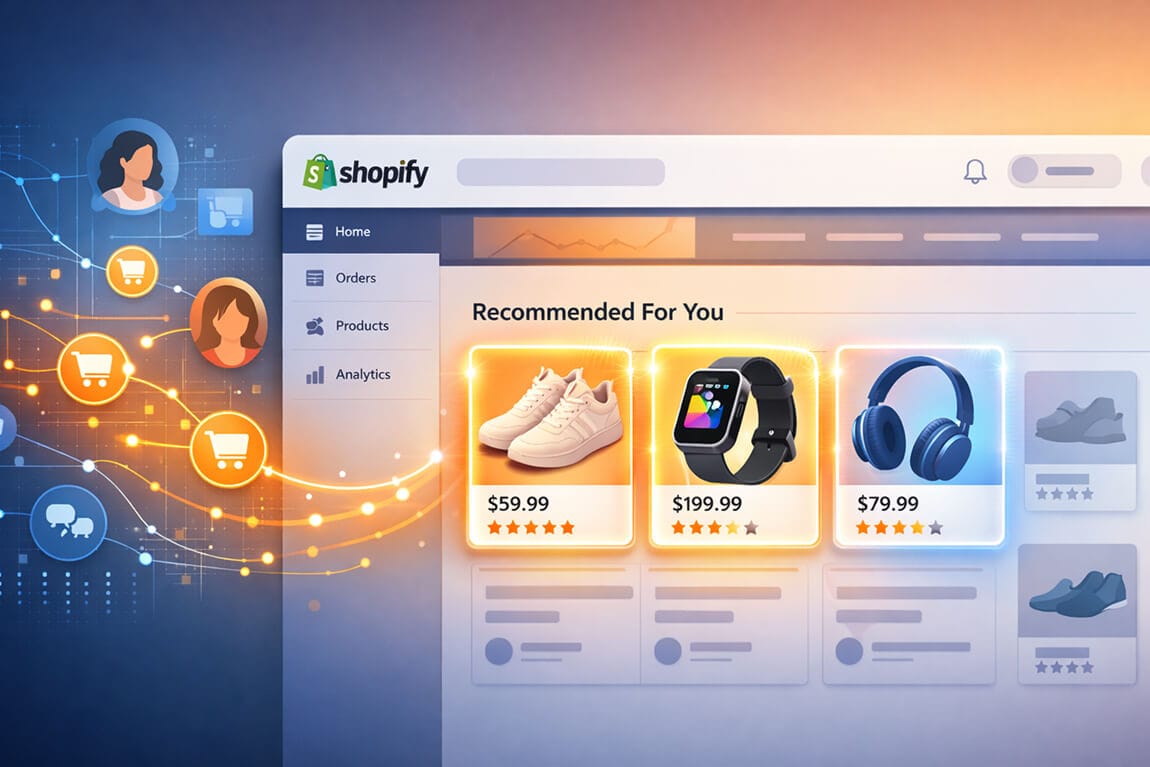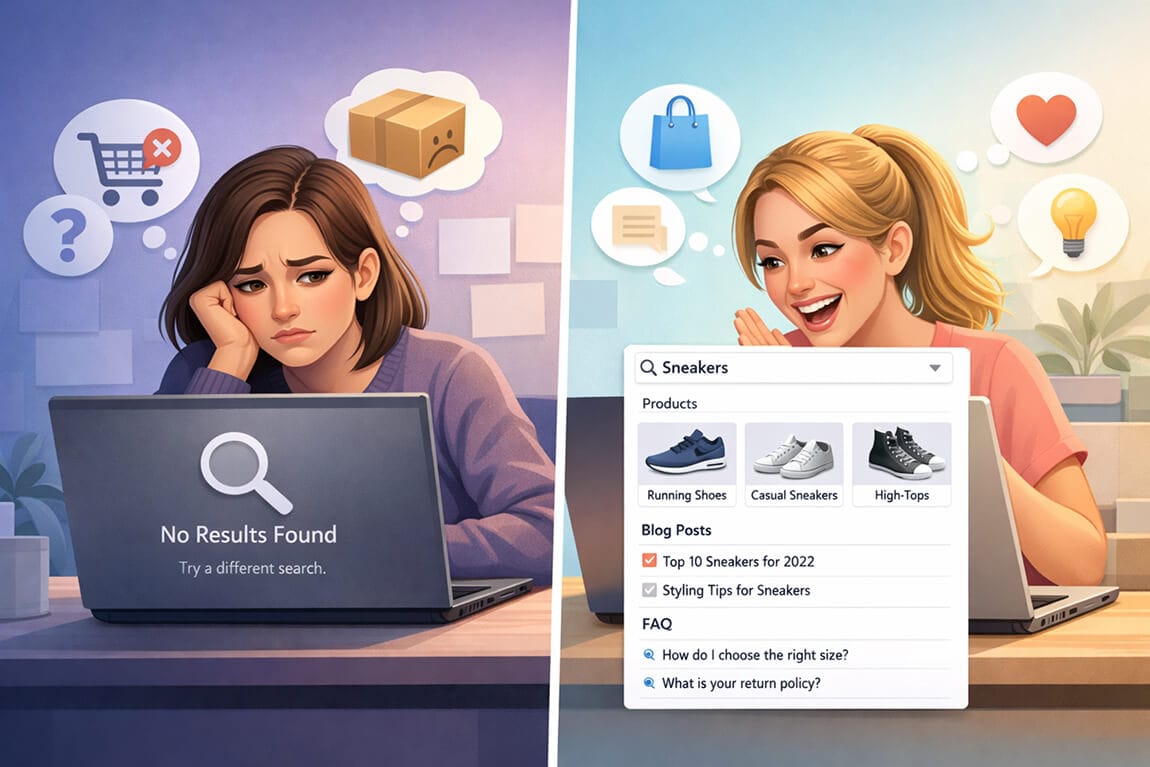
Why Your E-commerce Store Needs an AI Chatbot in 2024
Do you know that over 2 billion people shop online every day? This gives e-commerce stores a great chance to grow. But with more shoppers comes more problems, like keeping up with customer support, abandoned carts, and bad shopping experiences. Several e-commerce sites fail to meet up with customers' interaction, leaving customers frustrated and causing them to leave without making a purchase. Without quick help, stores miss out on sales, and customers leave disappointed. So, how can you handle all these tasks without burning out or letting things slip? You'll need AI chatbots for e-commerce. These smart virtual assistants can take on many of the daily tasks that slow you down and help automate the sales process. In this article, we’ll explore how AI chatbots for e-commerce work, why your e-commerce store needs an AI chatbot, and the best AI chatbot for your ecommerce store.
What Are AI Chatbots for E-commerce?

AI chatbots are smart tools that help e-commerce businesses talk to customers online. Using artificial intelligence (AI), these chatbots understand what customers are saying and respond quickly, making the shopping experience easier and faster. Unlike traditional chatbots, which only follow set rules, AI-powered chatbots are much smarter. They can learn from conversations and understand different ways customers ask questions, without getting confused. This makes them more helpful in e-commerce, where customers might phrase things differently.
What’s great about AI chatbots is that they work 24/7, providing help anytime customers need it. They give instant answers and can even suggest products based on what customers like, which makes shopping more personal and enjoyable. Now that you know what AI chatbots for e-commerce are, let us take a look at their key features.
What are the Key Features of E-commerce AI Chatbots?
AI chatbots have become essential tools for e-commerce businesses, offering a range of features that enhance the shopping experience. They include:
1. 24/7 Customer Support
One of the most valuable features of AI chatbots is their ability to provide round-the-clock customer support. Unlike human employees who need breaks and sleep, chatbots are always available to assist customers at any time of day or night. This means that whether it’s early in the morning or late at night, customers can get answers to their questions or help with their issues instantly. This continuous availability improves customer satisfaction and help is always at hand without delays. For e-commerce stores, this can lead to better customer service and increased loyalty.
2. Product Recommendations
AI chatbots do great in providing personalized product recommendations. They use data from customer interactions and store inventory to suggest products that customers might be interested in. For example, if a customer frequently buys sportswear, the chatbot can recommend the latest items or special offers related to sportswear. This personalized approach helps customers find products that match their preferences and can increase sales by encouraging additional purchases.
3. Order Management
Managing orders can be complex, but AI chatbots simplify the process for both customers and businesses. Through conversational interfaces, chatbots allow customers to track their orders, update delivery information, and manage their purchases easily. Customers can simply ask the chatbot for updates on their order status or make changes to their delivery address without needing to contact customer service directly. This convenience improves the overall shopping experience and reduces the workload on human staff, who would otherwise handle these tasks manually.
4. Cart Recovery
Abandoned carts are a common issue in e-commerce, where customers add items to their cart but leave the site without completing their purchase. AI chatbots can help recover these abandoned carts by sending reminders to customers. When a customer leaves items in their cart, the chatbot can send a message encouraging them to complete their purchase. It might offer a discount or provide additional information to entice the customer to return and finish their transaction.
5. Personalized Marketing
Personalized marketing is another powerful feature of AI chatbots. These chatbots can segment customers based on their behavior, preferences, and previous interactions. They then send customized promotional messages to different customer groups through various platforms, such as email, SMS, or social media. For example, a chatbot can send a special discount offer to frequent buyers or notify new customers about a welcome deal. Hence, with this AI feature, businesses can engage with their customers more effectively and encourage repeat purchases by making offers that are relevant to each individual.
How Do E-commerce AI Chatbots Help with Conversions
Let’s face it, running an online store is no small feat, and driving sales can be even tougher. You'll need AI chatbots because they’re game-changers when it comes to boosting conversions. But how exactly do they help? Through the following ways:
1. Customer Engagement
Imagine a customer browsing your store and they have a question about a product. Instead of waiting hours for a response, an AI chatbot pops up with instant answers. It's like having a helpful store assistant who's available 24/7. This real-time engagement keeps customers hooked, clears up their doubts, and often nudges them toward making a purchase. Quick answers mean happier shoppers and happier shoppers are more likely to buy!
2. Assistance in Decision Making
Sometimes, customers get stuck. Maybe they’re not sure which product to choose or they need more information about a feature. AI chatbots can step in and guide them through the process by offering recommendations, answering detailed questions, and even helping them at checkout. When the little bumps in the buying journey are reduced, people can easily decide and complete their purchase. It's more like having a personal shopping assistant that smooths the way to the “Buy Now” button.
3. Personalization and Retargeting
Here’s where things get really interesting. AI chatbots can offer personalized shopping experiences by tapping into a customer’s past behavior. They remember what a customer previously bought or browsed, and can suggest similar items that fit their style. Plus, they’re great at retargeting. If a customer leaves items in their cart, the chatbot can send friendly reminders to encourage them to come back and finish their order. This personalized touch feels more human and can lead to repeat purchases.
5 Use Cases of AI Chatbots in E-commerce
AI chatbots are changing the way online stores are operating by offering various functionalities that enhance customer experience. Here are five key use cases where these chatbots make a significant difference.
Use Case 1: Product Search & Recommendation

Instead of leaving customers to scroll endlessly through product pages, chatbots can help them find exactly what they need. All customers have to do is type in what they’re looking for, and the chatbot will suggest relevant products instantly. Some even offer personalized recommendations based on previous shopping habits or browsing history. For example, the chatbot can suggest options based on style, size, and brand preferences if a customer is looking for running shoes.
Use Case 2: Order Tracking and Updates
We’ve all been there, eagerly waiting for an order to arrive but unsure when it will get to us. AI chatbots are perfect for handling this. Rather than digging through emails or logging into your account, customers can simply ask the chatbot for the latest updates. The chatbot can give real-time information on order status, shipping details, and estimated delivery times, all through a quick and easy conversation.
Use Case 3: Abandoned Cart Recovery
Abandoned carts have been one of the biggest challenges of ecommerce stores. When customers add items to their cart but don’t complete the purchase, AI chatbots are a powerful tool to bring those customers back. Usually, if a cart is left behind, chatbots will send friendly reminders, personalized messages, or even special offers to encourage customers to return and finish the transaction. Let's say a customer leaves without buying, the chatbot can message them a day later, saying something like, "Hey, we noticed you left a few items in your cart. Would you like to complete your purchase? Here’s a 10% discount to sweeten the deal!" This can significantly improve conversion rates.
Use Case 4: Post-Purchase Support
The shopping experience doesn’t end after the purchase. Customers often need help with returns, refunds, or troubleshooting issues with their orders. AI chatbots are excellent for providing quick and efficient post-purchase support. They can walk customers through the return process, answer questions about refunds, and even help troubleshoot any problems with products. This takes a lot of pressure off your customer service team, allowing them to focus on more complex issues while the chatbot handles the routine queries.
Use Case 5: Marketing Campaigns
Chatbots aren’t just for customer support, they’re also great for marketing. E-commerce stores are using AI-powered chatbots to run personalized marketing campaigns through channels like WhatsApp, email, and social media. These bots can send targeted offers, product announcements, and exclusive discounts based on customer preferences and behavior. For example, if a customer frequently buys shoes, the chatbot can send them a personalized message when a new collection drops, offering an exclusive deal to keep them engaged. This kind of targeted marketing can help boost engagement and drive more sales.
AI Chatbot Integrations for E-commerce Websites
AI chatbots are powerful tools for e-commerce, allowing businesses to interact with customers across multiple platforms. When you integrate chatbots into popular communication channels, e-commerce stores can provide great, personalized experiences that boost customer engagement and drive sales. Let’s look at how AI chatbots can be integrated across various platforms.
1. WhatsApp AI Chatbot Integration

WhatsApp chatbots are widely used for direct communication with customers, and integrating an AI chatbot here can spice things up. These chatbots allow you to engage with customers directly by sending product suggestions, offering customer support, or even taking orders. Customers can simply send a message to your WhatsApp number and the chatbot will instantly help them with whatever they need
2. Facebook Messenger Integration

Many e-commerce businesses also use Facebook Messenger to reach their customers. Integrating a chatbot here allows you to engage with users right within Facebook, answering their questions, suggesting products, or promoting special offers. Messenger bots are great for offering personalized customer service without requiring a human to be online 24/7.
3. Instagram Integration

With Instagram being such a visual platform, integrating an AI chatbot here can really help drive sales. Instagram chatbots can engage users by answering direct messages, offering product recommendations based on what they’ve liked or commented on, and even helping them make purchases without leaving the app. It’s a great way to connect with shoppers who are already engaging with your brand visually.
4. Website AI Chatbot Integration
Of course, AI chatbots can also be directly integrated into your e-commerce website. These chatbots are usually trained on your product inventory, meaning they can assist customers with product searches, give personalized recommendations, and even help with order management and support. Customers can get instant answers and suggestions, making their shopping experience smoother and more efficient.
Marketing Campaigns Launched by AI Chatbots
AI chatbots aren't just for customer support, they're also great for launching personalized marketing campaigns. These chatbots use customer data to send targeted offers and promotions, making it easier for customers to find things they like and encouraging them to make a purchase. Here are some marketing campaigns launched by AI chatbots:
1. WhatsApp Marketing Campaigns
WhatsApp is a powerful tool for direct communication, and AI chatbots can take it to the next level. By sending personalized product promotions, discounts, and special offers to customers via WhatsApp, chatbots help drive conversions. For example, if someone has shown interest in a specific product, the chatbot can send them a reminder or offer a discount to nudge them toward a purchase. This personal touch can make a big difference in getting customers to act quickly
2. Email Marketing Automation
AI chatbots are also excellent at automating email campaigns. They can send personalized emails based on customer behavior. It can be a reminder about an abandoned cart, a special discount for a loyal customer, or a suggestion for a product they may like based on past purchases. These targeted emails help boost engagement and increase the chances of conversions, all without the need for manual input.
3. Cross-Channel Campaigns
Why stop at just one channel? AI chatbots can coordinate marketing campaigns across multiple platforms, like WhatsApp, email, and even Facebook. By reaching customers on different channels, your message gets in front of a wider audience, increasing the chances of engagement and conversions. It’s a smart way to run marketing campaigns without missing out on any opportunities.
How to Implement AI Chatbots for Your E-commerce Store
Implementing AI chatbots in your e-commerce store can improve customer engagement and increase sales. You can follow these simple steps to begin:
Step 1: Install a Tool
The first step is to choose a reliable AI chatbot platform that fits your business needs. Popular platforms like Tidio, ManyChat, or Drift offer easy integration with e-commerce stores. Once you've selected your tool, follow the instructions to install it. This usually involves connecting the chatbot to your store’s platform, like Shopify or WooCommerce, to ensure everything works smoothly.
Step 2: Connect Your Website
After installing the chatbot, it’s important to connect it to your website. This will allow the chatbot to interact with customers who visit your online store. The chatbot can assist with answering questions, helping customers find products, and providing support.
Step 3: Train the Chatbot on Your E-commerce Inventory
Once connected, train your chatbot to understand your product catalog. You'll have to teach it about your products so it can recommend the right items based on customer preferences. This step is key for improving the shopping experience and increasing sales.
Step 4: Choose a Plan
Most AI chatbot platforms offer various pricing plans, from free basic versions to more advanced options with extra features. Just pick any plan that aligns with your business size, needs, and of course, your budget.
Step 5: Test the Chatbot
Before launching, test the chatbot to ensure it responds correctly to customer queries and handles tasks effectively. This helps prevent any issues once it goes live.
Step 6: Make it Live
After testing, launch the chatbot on your site and start serving customers. You can always continue optimizing it based on customer interactions.
Examples of AI Chatbot Conversations for E-commerce
AI chatbots are making customer interactions faster and smoother. Here are some real conversations between customers and our chatbot.
1. Product suggestions
For product suggestions, a customer might ask "I need a gift for my friend.” Take a look below at how it could turn out:

2. Order management
When it comes to order management, the conversation could be:

3. FAQ responses
Chatbots are also great with FAQ responses. The image below explains better:

4. Cart recovery
For cart recovery, a chatbot might send: "You left a few items in your cart! Complete your purchase today and get 10% off.”
Conclusion
There has been a growing need for online stores to deliver excellent customer service, especially since 49% of shoppers stopped buying from brands last year due to poor experiences. One way to get this done is by using AI chatbots. These chatbots make it easier to resolve customer questions and improve service without needing to grow your team. You can add an AI chatbot to your website, social media pages, or even your Shopify store to enhance the overall experience for your customers and keep them satisfied with your brand.










